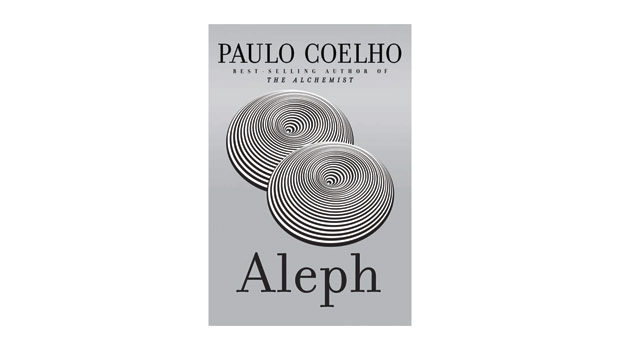“Aleph” is yet another autobiographical rendering by Coelho, if not a complete revelation of his personal experiences during a seemingly long and arduous train journey he undertook across the trans-Siberian border from Moscow to Vladivostok in 2006. It was a time when he says: “Praying, meditating or helping a neighbor still didn’t satisfy the connection between god and myself.”
He thus leaves on the expedition, a modern pilgrimage if you may, all in a bid to reconnect with his realm of spiritual existence and to once again conquer the kingdom of life.
During this journey, he meets a young 21-year-old Turkish girl named Hilal with whom he develops a relationship, or rather reunites in one that transcends generations, cultures, age differences, circumstances, time and space itself. A relationship that matures into a love that refuses to be named or bear a designation. The book is a narration of how their consequent travels together reveal to him the significance of her demanding presence at that very discomforting phase in his life.
“Aleph” in essence is about the search for answers to the crisis one may face in life of faith and contentment, regardless of age, accomplishments or whether one is in possession of things they wished for or not. It is about the strength to start over when life feels like a mere drudgery, a routine and a stalemate. It’s about questioning the position of your relationship with the power that defines your existence on earth. It is about asking questions that validate the reasons for asking those very questions themselves. This book is an account of that journey, in order that one may find one’s self again.
Coelho is a master writer of stories that are reflective of his own personal soul-searching journeys and is deeply influenced by themes of spiritualism, symbolism and the occult. He is found exploring the mystical elements of “aleph,” its existence, power and the sole influence of the entity upon those able to experience it.
“Aleph”, in its most mysterious and spiritual implication of the word, is about finding oneself in a frame of complete awareness of one’s past actions, relationships and situations that may influence the course of a future.
It is about discovering that very prime spot in space that allows you to enter a state of clarity, reasoning, understanding and pure enlightenment. In addition, it is about finding the courage to face your own demons — the point where all fears are conquered, confusions are dissolved, circumstances are justified and relationships are defined.
However, finding and bringing oneself consciously to that space in time is the very crux of the matter, something, which requires immense courage in having to make the passage into a terrain unknown.
If you find yourself willing to identify with the questions that the book raises through the course of the author’s journey, but may not necessarily answer, then this is a read for you. If not, then all that the book may provide is a further insight into the complexities that exist in human relationships and other ambiguous actualities worthy of discovery by those brave enough to reflect, decipher and embark on those mysteries of life far from being understood.
Coelho has called this journey “a real turning point, where the book ‘Aleph’ has been the result of that experience.” He says that he quite understood the meaning of that trip only a few years later to have been able to turn it into a memoir of sorts.
“Yes, I could have reached the same conclusions without ever leaving Brazil, but just like Santiago, the shepherd boy in one of my books (‘The Alchemist’), sometimes you have to travel a long way in order to find what is near.”
A passage from “Aleph” reads: “When the rain returns to earth, it brings with it the things of the air. The magical and extraordinary are with me and with everyone in the universe all the time, but sometimes we forget that and need to be reminded, even if we have to cross the largest continent in the world from one side to the other. We return laden down with treasures that might end up getting buried again, and then we will have to set off once more in search of them. That’s what makes life interesting — believing in treasures and in miracles.”
It is even better when someone invites you to “be a part of that journey ... in maintaining the power of what we seek….”










